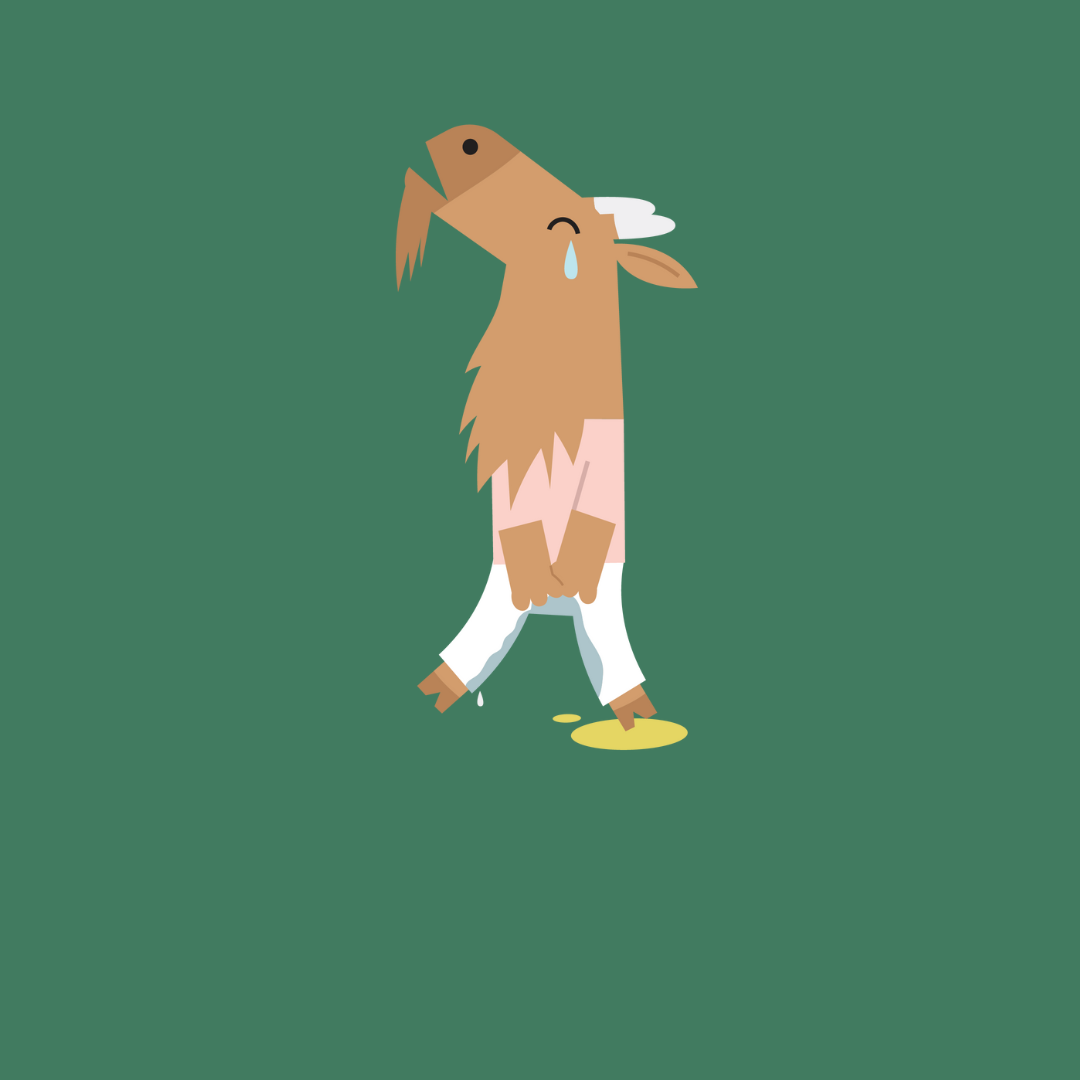Accidents: How do you deal with them? And how much is normal?
Accidents are part of learning to use the potty. For many parents, they are a source of doubt and frustration: am I doing something wrong, or is this normal? The answer is reassuring: accidents are inextricably linked to the learning process. In this article, you'll read why they're part of it, how to react calmly, how many accidents are normal on average, and what you can do to prevent them. You'll also get tips for on the go, at daycare, and at night. This way, you can deal with this phase with more confidence and less stress.
Why mishaps come with it
Potty training requires your child to learn three things at the same time: feeling (recognizing the urge), understanding (what should I do?) and doing (going to the potty or toilet on time). Especially during busy play or in new places, this order is difficult. That makes accidents not a sign of failure, but a sign that your child is still practicing a lot. Just like learning to ride a bike, it goes with ups and downs.
How do you respond to an accident?
The way you react determines whether your child feels safe to continue practicing. Keep your reaction short and neutral:
- State factually: "Oops, your pants are wet."
- Solve practically: clean up together and put on clean clothes.
- No lecture or punishment: sighing, punishing or comparing ("your sister could already do it") doesn't help, it only increases the tension.
- Short bridge forward: "We'll try again in a bit."
By staying small and friendly, you teach your child that it is safe to keep trying.
How many accidents are normal?
- Start phase: multiple accidents per day are normal. The emphasis is on getting acquainted and trying.
- Practice phase: there are already first successes, but accidents remain, especially during busy play or fatigue.
- Routine phase: accidents decrease, but can still happen with distraction, outdoors or when pooping.
- Stable phase: Occasional accidents are normal, especially in new situations or when stressed.
Watch the trend: Are the dry periods getting longer, and is your child trying more often on their own? Then you're on the right track, even if there are still accidents.
Signs that you need to pay attention
Although accidents are normal, there are signs that you should be extra alert:
- Your child pees very often in small amounts or complains about pain/burning.
- Your child poops in their pants, and this is accompanied by tension or pain (possibly constipation).
- After months of practice, there is absolutely no progress in attempts or dry intervals.
In those cases, it may be wise to seek advice from the clinic or doctor.
Accident prevention in practice
- Fixed moments: Try briefly 2–4 times a day (after getting up, after eating, before going outside, before sleeping).
- Easy clothing: pants with elastic instead of buttons or dungarees.
- Child-friendly toilet: potty in sight or toilet with reducer and step stool.
- Transition from play: “One more block, then toilet.”
- Rest when pooping: feet support and a short book; focus on relaxed sitting.
Accidents on the road and at the shelter
The chance of accidents is greater outside the home: new environment, crowds, and less predictability.
- Before departure: always try at home first.
- Bring a spare: clean clothes, underwear, and a plastic bag for wet items.
- Upon arrival: point out the toilet or changing area immediately.
- With daycare or grandparents: agree on the same words and moments, and ask for a short handover: “Tried 2×, succeeded 1×, 1 accident.”
Nighttime accidents
Many children are already dry during the day but not yet at night. Nighttime dryness often comes later and is separate from daytime dryness. It helps to:
- Let them pee again before going to sleep.
- Use a mattress protector for peace of mind in case of accidents.
- React neutrally to a wet bed: change them quickly and put them back to sleep.
Only practice without a night diaper if there are regularly dry mornings.
How do you deal with your own frustration?
Accidents can be tiring. It's important that your child feels your tension. Stay calm yourself by:
- Inhale, exhale: count to three before you react.
- Look at the big picture: see the progress over weeks, not just one day.
- Share concerns: talk to your partner, daycare, or other parents. You're not alone.
Frequently asked questions
Does my child immediately have to say sorry after an accident?
Not necessary. It's about learning, not about guilt. Keep it practical and friendly.
Does it help to ask more often "do you need to pee?"
Asking too often creates pressure. Fixed, predictable moments are better.
My child hadn't had any accidents for weeks and suddenly does again. Is that normal?
Yes. Relapses are part of it, for example during holidays, illness, or busy periods. Go back to basics and it usually recovers quickly.
Summary
Accidents are part of the learning process of potty training. React briefly and neutrally, look at patterns instead of individual days, and offer predictable routines. Several accidents a day are normal in the initial phase. Are dry periods getting longer and is your child trying more often on their own? Then you're on the right track. Only with pain, fear, or no progress at all is it time to ask for advice. This is how you keep it safe, calm and feasible for your child - and for yourself.

.svg)







%20Ledenlogo2.png)